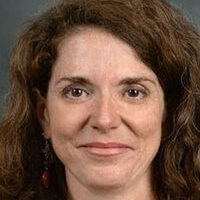As Pakistan enters its second week under martial law, political parties, unionists, lawyers, journalists and other “civil society” components are coalescing to challenge Gen. Pervez Musharraf’s emergency rule and widespread repression of democratic rights.
Using the pretext of threats on the life of former Prime Minister Benazir Bhutto, Musharraf’s regime placed her under house arrest and stationed some 4,000 soldiers outside, calling it “special security measures.”
Reacting to the crackdown by Musharraf, Syed Zia Ullah Azam, international secretary of the All Pakistan Federation of United Trade Unions, wrote, “Rather ironically, as a result of an emergency stated to be directed against terrorism, it is civil society that is facing the brunt of the state’s wrath.”
In comments posted on Labourunity.org, the labor leader said, “Whereas there have been no news reports regarding the arrest of key militants [terrorists], lawyers, human rights activists, labor leaders and journalists have all been mercilessly targeted. At least 300 lawyers were arrested during protests in Karachi, Gujrat and Lahore on Nov. 5 and on Nov. 6 a lawyers’ rally in Multan was brutally attacked. Others, women among them, were badly beaten and bludgeoned by the police. This seems odd, given that, in most circumstances, these groups would be seen as being opposed to militancy [terrorist extremism], and as such, logically speaking, should be lining up on the same side of the divide as the forces of President Pervez Musharraf. The fact that this has not happened suggests the measures taken by the state are intended to deal with dissent rather than terrorism.”
Bhutto had lived in exile since 1999, the year Musharraf took power through a military coup. She returned to Pakistan, Oct. 18, greeted by rally of 3 million people in Karachi. A bomb detonated during the rally killed some 150 people and wounded 500. The Pakistan People’s Party that she leads has a substantial following especially among professionals and the middle class.
Bhutto and others say that while there are extremists in Pakistan that use terrorism, they do not have popular support and are not on the brink of taking over the country. Many in Pakistan argue that the policies of the U.S.-backed Musharraf dictatorship only intensify and increase right-wing religious extremism. They say that terrorists and provocateurs use Musharraf’s ties to the Bush administration and U.S. imperialism to advance their own disruptive and anti-democratic agendas.
The Bush administration may be promoting Bhutto too, some argue, to give Pakistan a democratic veneer while continuing to be compliant to the administration’s global objectives.
However, Pakistan’s democratic movements are taking on a life and agency of their own.
In a Nov. 10 speech in Islamabad, Bhutto said, “Pakistan under dictatorship is a pressure cooker. Without a place to vent, the passion of our people for liberty threatens to explode. The current military dictatorship that rules my country with an iron fist is opposing the inevitable forces of history. There is not enough barbed wire, or bullets, or bayonets to defeat my people’s unquestionable desire for democracy, for control over their own lives, for human rights, gender equality, labor and minority rights and for a chance to build a better life for their children.
She continued: “It is 11 years since the destabilization of the democratic government I led, but it has failed to crush the will and support of the people for a representative government that addresses the bread and butter issues of our people, 74 percent of whom live in poverty.”
Bhutto rejected the terrorist danger as a reason for martial law. “The current regime has convinced some nations that General Musharraf alone stands in the way of a nuclear armed, fundamentalist Pakistan. This is a misperception. The religious parties in Pakistan have never received more than 11 percent of the vote in any election and they would receive less today. It is dictatorship that fuels extremism.”
Bhutto pointed out that the U.S.-backed 1980s dictatorship of Gen. Mohammed Zia-ul-Haq “created the Afghan Mujahideen which morphed into Taliban and Al-Qaeda.”
Zia-ul-Haq and Pakistan’s intelligence wing, the ISI, received support from and worked with the Reagan administration and the CIA in arming and training these forces to fight Afghanistan’s secular, democratic government and the Soviet Union.
“The political partners” of that 1980s dictatorship “hold key positions in the political, administrative and security institutions of this dictatorship,” Bhutto charged. “They cannot and have not contained extremism nor reduced poverty. They have exacerbated the situation to an extent where nuclear-armed Pakistan is threatened with implosion.”
The PPP, unions and other democratic forces are calling for an immediate end to emergency rule, restoring Pakistan’s constitution, reinstating judges and lifting curbs on the media. They say Musharraf must step down immediately as army chief, and elections must be held on Jan. 15 as scheduled.
talbano @pww.org









Comments